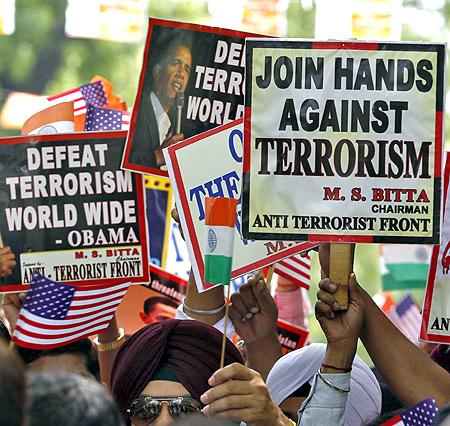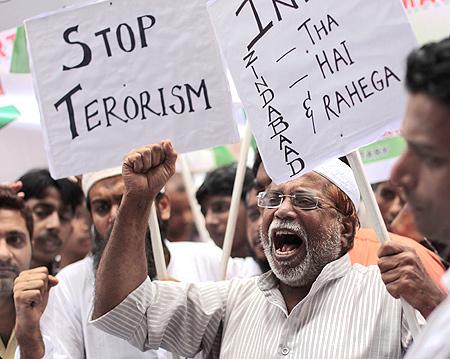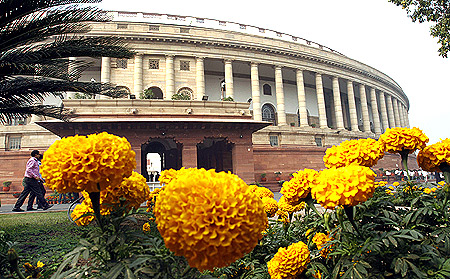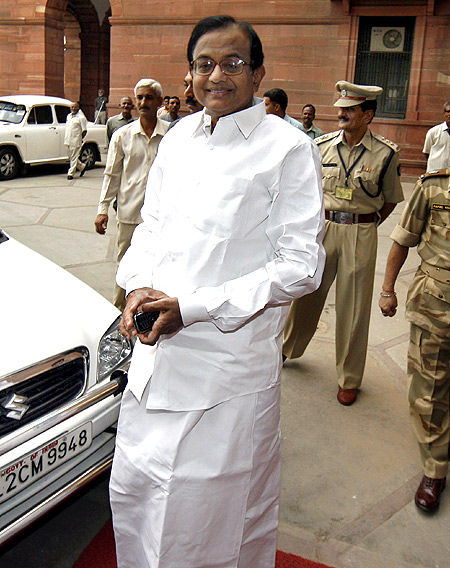Photographs: Adnan Abidi/Reuters Anil Chowdhry
The prime minister should perhaps drop the police role of the NCTC, leaving it free to focus its energies on intelligence gathering, coordination and operations, says Anil Chowdhry, former secretary, internal security, ministry of home affairs.
Anyone who has dealt with or understands internal security issues will tell you that the National Counter Terrorism Centre is an imperative. Such a body is required to meet the growing threat of terrorist violence which recognises neither national nor international boundaries, especially for a country like ours, which faces a high level of threat.
Under our Constitution, law and order and policing are undoubtedly the responsibility of the state governments. But at the time our Constitution was framed there were no organised terrorist groups of the kind operating globally today.
Post Independence, communal and political ideology driven violence was the worst that the police forces were called upon to tackle.
The current scenario is vastly different.
Realising the seriousness of the threat from trans-national terrorism, almost all major democracies including the US, UK, and other European countries have been able to enact and create central agencies to tackle the menace, within the framework of their respective federal structures, placing national security concerns above partisan politics.
Unfortunately, in our country a similar initiative has got caught in controversies -- mostly political, and partially by the manner in which the NCTC was sought to be created by the Cabinet Committee on Security via a proposal mooted by the nodal ministry for internal security, the ministry of home affairs.
Please ...
The outcry is about the Centre treading on the state governments' toes
Image: A anti-terror rally in Mumbai after the bomb blast outside the Delhi high court last SeptemberPhotographs: Danish Siddiqui/ Reuters
I was posted in our embassy in Washington, DC when that country was shaken to its roots by the 9/11 attacks. Before 9/11 it had surprised me no end that the world's oldest and most powerful democracy did not have an internal or counterterrorism agency.
Intelligence and counterterrorism was left entirely to the Central Intelligence Agency which was basically their external intelligence agency. The Federal Bureau of Investigation too had an intelligence unit whose primary focus was on drug trafficking and other forms of organised crimes. And they did pay the price for this lack of infrastructural support to protect their homeland!
The US responded very swiftly by enacting the rather draconian Patriot Act, and later by creating the mammoth body in the form of the department of homeland security and the National Counterterrorism Centre, all reporting directly to the President.
Although a few eyebrows were raised and one could hear murmurs of dissent, there was no outcry like being witnessed now in our country.
Whenever a serious terrorist incident takes place the state governments have been observed taking the plea that there was no advance intelligence from the central agencies and occasionally one also comes across comments to the effect that the state police forces are neither equipped nor geared to counter threats of such magnitude, specially those driven by external entities.
But now that the Centre has come up with a proposal to constitute a central agency to combat terrorist threat head on, there is a growing outcry that the Centre is treading on the state governments' toes, in violation of the letter and spirit of our Constitution.
The objections are being voiced in the form of letters written by several chief ministers to the prime minister which have also been leaked to the media. This should generate a debate among the intelligentia, but barring a couple of editorials in the national dailies, I have not seen much of this happening.
Please ...
Political parties push their narrow agenda, brushing aside national security interests
Image: Will the NCTC issue rock the Budget session of Parliament?Photographs: B Mathur/Reuters
Quite lamentably, our political parties, even those who repeatedly tom-tom their national credentials, choose to push their narrow political agenda brushing aside national security interests.
Also, at times like this one sadly feels the absence of apolitical think-tanks comprising experts on national and internal security matters in our country. The few that are in existence are neither consulted nor called upon to assess the impact of proposed infrastructural changes to meet emerging challenges.
Unlike the US where such think-tanks abound and actually aid the government to take the requisite measures to tackle national security issues, in our country, it is invariably 'babus' aided political decisions which hold sway.
Having been involved in the fight against terrorism for many years, I am very convinced that there is a need for an agency to coordinate and focus intelligence driven counterterrorism operations, nationally.
Following a visit to the US to study the counterterrorism apparatus devised post 9/11 which has so far stood the test of time, the present home minister, I understand, came back quite impressed by their NCTC and took it upon himself to launch one here.
He announced his plan to do so almost one year ago. Where he seems to have gone wrong is that he failed to bring the state governments on board through prior consultations.
Please ...
Chidambaram must be the captain of the team
Image: Home Minister Palaniappan Chidambaram confronts stiff opposition from chief ministers on the NCTCPhotographs: Adnan Abidi/Reuters
The home minister in the context of our Constitutional framework must be the captain of a team. It is a game of cricket, hockey or football that he is playing, not tennis.
Judging from media reports, it appears that a few chief ministers have expressed their misgivings over police powers being given to the NCTC. In my view, the situation can be salvaged by holding consultations and discussions with the chief ministers to remove such apprehensions.
Instead of making it a prestige issue, our prime minister should stand up to his image of being a serious and mature politician to accommodate dissenting views and perhaps drop the police role of the NCTC, leaving it free to focus its latent energies on intelligence gathering, coordination and operations.
As far as the issue raised in a section of our political leadership about the NCTC functioning under the Intelligence Bureau is concerned, I am firmly opposed to creating a multiplicity of intelligence agencies. That, in my view, is part of the problem due to which our counterterrorism efforts have so far not been as successful as they should have been.
Anil Chowdhry is a former secretary, internal security, ministry of home affairs.





article